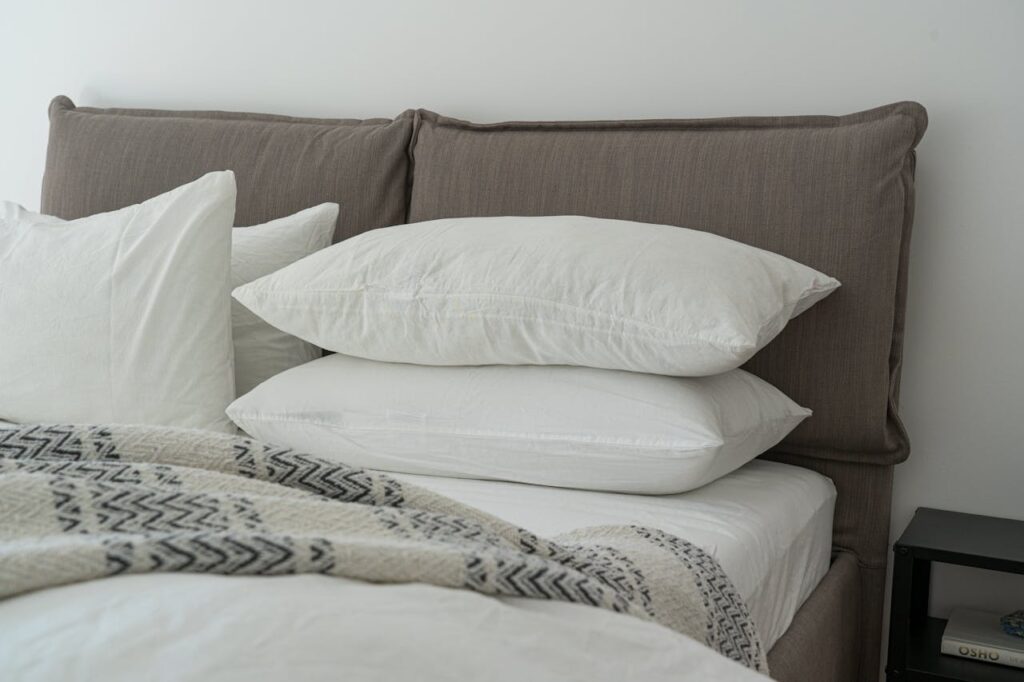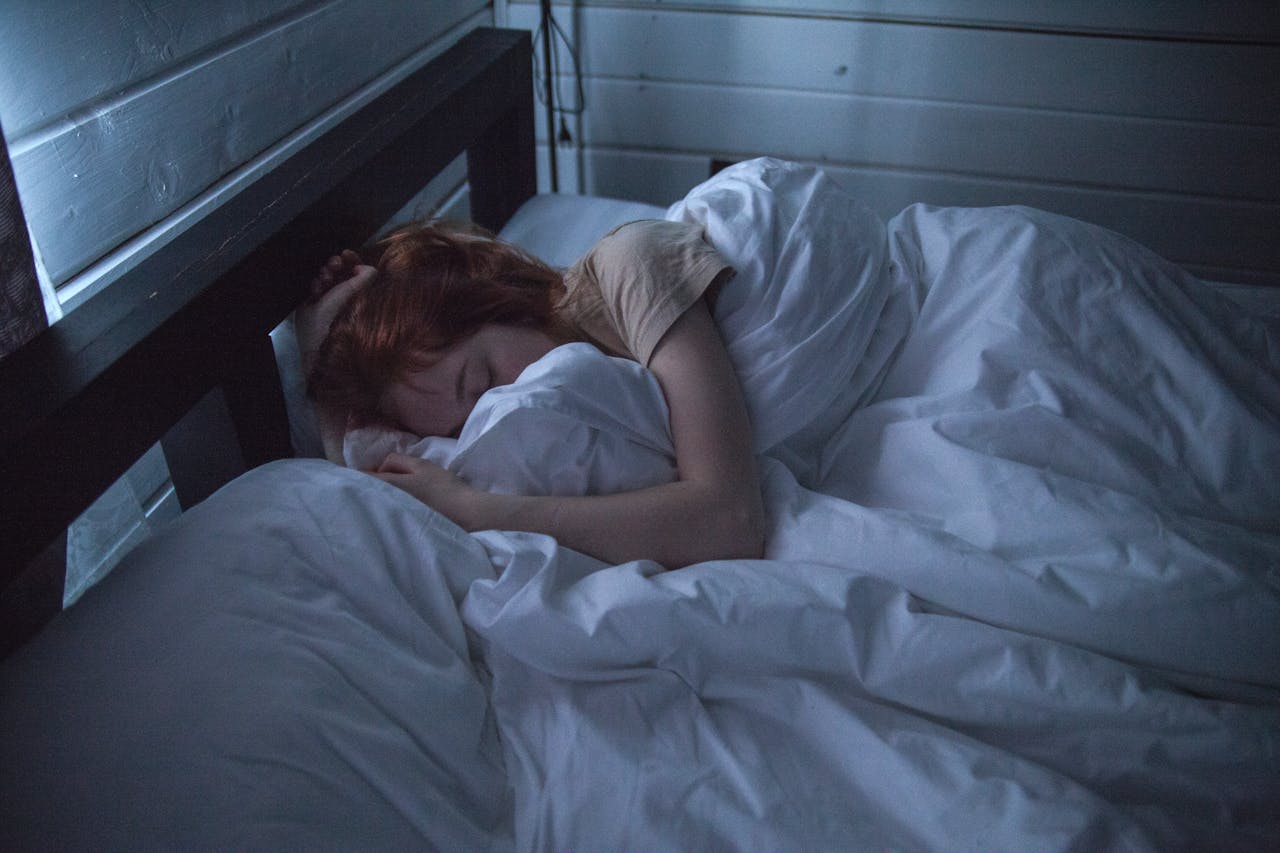Are you tired of tossing and turning all night, only to wake up feeling groggy and unrefreshed? It’s time to take control of your sleep schedule and transform your life. In this article, we’ll explore the ins and outs of creating the perfect sleep routine that’ll have you bouncing out of bed, ready to seize the day. So, grab your favourite cosy blanket, and let’s dive into the world of better sleep!
Understanding the Importance of a Consistent Sleep Schedule
Let’s face it, we’ve all been there – burning the midnight oil, binge-watching our favourite shows, or scrolling endlessly through social media. But did you know that these habits could be wreaking havoc on your sleep schedule? It’s time to dive into why having a consistent sleep routine is crucial for your overall well-being.
The Role of Circadian Rhythms in Regulating Sleep-Wake Cycles
Your body has an internal clock, known as the circadian rhythm, which plays a vital role in regulating your sleep-wake cycles. This biological timekeeper is influenced by external cues, primarily light exposure, and helps determine when you feel alert or sleepy throughout the day.
The circadian rhythm is like a conductor of an orchestra, ensuring that various biological processes in our body occur at the right time [1]. When you maintain a consistent sleep schedule, you’re essentially helping your internal conductor keep everything in harmony.
Benefits of Maintaining a Regular Sleep Schedule
Sticking to a regular sleep schedule isn’t just about feeling less groggy in the morning. Here are some impressive benefits you can expect:
- Improved sleep quality: Your body learns to anticipate sleep, making it easier to fall asleep and wake up naturally.
- Enhanced cognitive function: Consistent sleep patterns support better memory, concentration, and decision-making skills.
- Balanced mood: Regular sleep helps regulate emotions and reduce the risk of mood disorders.
- Stronger immune system: Your body uses sleep time to repair and regenerate, boosting your immune function.
- Better metabolic health: Consistent sleep patterns can help regulate hormones that control appetite and metabolism.
How Inconsistent Sleep Patterns Affect Health and Productivity
On the flip side, irregular sleep patterns can throw a wrench in your body’s finely tuned machinery. A study published in the journal “Sleep” found that individuals with irregular sleep schedules had a higher risk of obesity, high blood pressure, and diabetes [2].
Moreover, inconsistent sleep can lead to a phenomenon called “social jet lag,” where your body’s internal clock is out of sync with your social and work obligations. This misalignment can result in decreased productivity, increased stress, and even a higher risk of cardiovascular diseases.
Determining Your Ideal Bedtime and Wake-Up Time

Now that we understand the importance of a consistent sleep schedule, let’s figure out how to determine the best sleep times for you. Remember, there’s no one-size-fits-all approach – it’s about finding what works best for your lifestyle and natural tendencies.
Calculating Your Optimal Sleep Duration
While the oft-quoted “8 hours of sleep” is a good general guideline, sleep needs can vary from person to person. The National Sleep Foundation recommends that adults aim for 7-9 hours of sleep per night [3].
To find your sweet spot, try this experiment:
- For a week or two, go to bed when you feel tired and allow yourself to wake up naturally (no alarm clocks!).
- Keep track of your sleep duration each night.
- Calculate the average sleep time over this period.
This average gives you a good idea of your body’s natural sleep needs.
Tips for Finding Your Natural Sleep-Wake Cycle
Identifying your chronotype – your body’s natural preference for sleeping and waking – can help you work with your biology rather than against it. Dr. Michael Breus, also known as “The Sleep Doctor,” categorizes chronotypes into four animal types: Bears, Lions, Wolves, and Dolphins [4].
Here’s a quick rundown:
- Bears: The most common type, with sleep-wake patterns that follow the sun.
- Lions: Early risers who are most productive in the morning.
- Wolves: Night owls who feel most alert in the evening.
- Dolphins: Light sleepers who may struggle with insomnia.
Identifying your chronotype can help you structure your day to maximize your natural energy peaks and valleys.
Gradual Adjustments to Shift Your Current Schedule
If your current sleep schedule is far from ideal, don’t worry! The key is to make gradual adjustments. Trying to overhaul your sleep pattern overnight is likely to backfire.
Instead, try this approach:
- Shift your bedtime and wake-up time by 15 minutes every few days.
- Stick to the new schedule consistently, even on weekends.
- Be patient – it can take several weeks for your body to adjust to a new sleep rhythm.
Consistency is key. Even if you have a late night occasionally, try to stick to your regular wake-up time to keep your circadian rhythm on track.
Creating a Relaxing Bedtime Routine
Now that you’ve identified your ideal sleep schedule, it’s time to create a bedtime routine that signals to your body it’s time to wind down. Think of this as your personal lullaby – a series of calming activities that prepare you for a restful night’s sleep.
Winding Down Activities to Prepare for Sleep
Your bedtime routine doesn’t have to be elaborate or time-consuming. The goal is to engage in relaxing activities that help you transition from the busyness of the day to a state of calm. Here are some ideas to get you started:
- Read a book: Choose something enjoyable but not too stimulating.
- Practice gentle stretching or yoga: Focus on relaxing poses that release tension.
- Take a warm bath: The drop in body temperature after you get out of the bath can induce sleepiness.
- Listen to calming music or a sleep podcast: Audio designed for sleep can be very effective in promoting relaxation.
- Practice mindfulness or meditation: Even a few minutes can help quiet a busy mind.
A consistent bedtime routine acts as a powerful cue to the brain that it’s time to wind down and prepare for sleep [5].
The Importance of a Sleep-Friendly Environment

Your bedroom environment plays a crucial role in promoting good sleep. Here are some key factors to consider:
- Temperature: Keep your bedroom cool, ideally between 60-67°F (15-19°C). Your body temperature naturally drops as you fall asleep, and a cool room can facilitate this process.
- Darkness: Use blackout curtains or an eye mask to block out light. Darkness stimulates the production of melatonin, the hormone that regulates sleep.
- Noise control: If you live in a noisy area, consider using a white noise machine or earplugs to create a quiet environment.
- Comfortable bedding: Invest in a supportive mattress and pillows that suit your sleep position.
- Clutter-free space: A tidy bedroom can promote a sense of calm and reduce stress.
Managing Screen Time and Blue Light Exposure
In our digital age, managing screen time before bed is crucial for good sleep hygiene. The blue light emitted by screens can suppress melatonin production, making it harder to fall asleep.
Artificial light exposure between dusk and the time we go to bed at night suppresses the release of the sleep-promoting hormone melatonin, enhances alertness and shifts circadian rhythms to a later hour—making it more difficult to fall asleep [6].
To mitigate this effect:
- Implement a “digital sunset” 1-2 hours before bedtime, turning off all screens.
- If you must use devices, enable blue light filters or wear blue light-blocking glasses.
- Switch to warm, dim lighting in the evening to signal to your body that it’s time to wind down.
Creating a relaxing bedtime routine is about finding what works best for you. Experiment with different activities and create a routine that you look forward to each night.
Read more: Unlock The Secrets of a Successful Bedtime Routine
Optimizing Your Morning Routine for Better Sleep
Believe it or not, a good night’s sleep actually starts with how you begin your day. Your morning routine sets the tone for your circadian rhythm, influencing your energy levels and sleep patterns for the next 24 hours. Let’s explore how to kickstart your day for optimal sleep later on.
Establishing a Consistent Wake-Up Time
Just as important as a consistent bedtime is a regular wake-up time. Yes, even on weekends! While it might be tempting to sleep in on your days off, doing so can disrupt your body’s internal clock, leading to what sleep experts call “social jet lag.”
Social jet lag is the discrepancy between our biological clock and our social clock [7]. This mismatch can lead to fatigue, mood disturbances, and even long-term health issues.
To maintain a consistent wake-up time:
- Set your alarm for the same time each day, including weekends.
- Avoid the snooze button – those extra few minutes of fragmented sleep can actually make you feel more tired.
- If you’re struggling to wake up, consider using a smart alarm that tracks your sleep cycles and wakes you during a lighter stage of sleep.
The Benefits of Morning Light Exposure

One of the most powerful ways to regulate your circadian rhythm is through light exposure, particularly in the morning. Natural sunlight helps suppress melatonin production and boosts cortisol, a hormone that helps you feel alert and awake.
It is recommended getting at least 30 minutes of bright light exposure in the morning, preferably by getting outdoors [8].
If you can’t get outside, consider using a light therapy lamp, which mimics natural sunlight. These lamps can be particularly helpful during darker winter months or for those who need to wake up before sunrise.
Energizing Activities to Kickstart Your Day
Starting your day with activities that energize you can help reinforce your wake cycle and set a positive tone for the day ahead. Here are some ideas:
- Morning exercise: A brisk walk, yoga session, or workout can boost energy levels and improve sleep quality later on.
- Hydration: Drink a glass of water first thing to rehydrate after a night’s sleep.
- Nutrient-rich breakfast: Choose foods that provide sustained energy, like oatmeal with fruits and nuts, or eggs with whole-grain toast.
- Mindfulness practice: Start your day with a short meditation or gratitude exercise to set a positive intention.
- Cold shower: A brief cold shower can increase alertness and even boost your mood.
The goal is to find morning activities that you enjoy and that help you feel energized. Experiment with different routines to see what works best for you.
Dealing with Common Sleep Schedule Disruptors
Even with the best intentions, life can sometimes throw a wrench in our carefully crafted sleep schedules. Whether it’s shift work, travel, or other disruptions, it’s important to have strategies to cope with these challenges and maintain healthy sleep patterns as much as possible.
Strategies for Managing Shift Work and Irregular Hours
Shift work can be particularly challenging when maintaining a consistent sleep schedule. However, there are strategies to mitigate its impact:
- Consistent sleep schedule: Try to sleep at the same time after each shift, even if it’s during the day.
- Light management: Use blackout curtains for daytime sleep and expose yourself to bright light when you need to be alert.
- Strategic napping: A short nap before your shift can help boost alertness.
- Careful caffeine use: Limit caffeine intake, especially in the hours leading up to your sleep time.
- Communicate with family and friends: Let them know your schedule so they can respect your sleep times.
The key is to try to keep the same sleep schedule on work days and days off, which helps keep the body’s circadian clock in sync [9].
Coping with Jet Lag and Travel-Related Sleep Issues
Jet lag occurs when our internal clock is out of sync with the local time at our destination. Here are some tips to manage it:
- Adjust your schedule before travel: Start shifting your sleep times a few days before your trip to align with your destination’s time zone.
- Stay hydrated: Dehydration can worsen jet lag symptoms.
- Time your light exposure: Seek out or avoid light at specific times to help reset your body clock.
- Consider melatonin: Some studies suggest that melatonin supplements can help with jet lag, but consult your doctor first.
- Avoid long naps: Short power naps (20-30 minutes) are okay, but avoid longer naps that can disrupt nighttime sleep.
Addressing Sleep Disorders and When to Seek Professional Help
While many sleep issues can be addressed through lifestyle changes, sometimes professional help is needed. Common sleep disorders include:
- Insomnia: Difficulty falling asleep or staying asleep.
- Sleep apnea: Breathing interruptions during sleep.
- Restless leg syndrome: An irresistible urge to move the legs, often accompanied by uncomfortable sensations.
- Narcolepsy: Excessive daytime sleepiness and sudden sleep attacks.
If you’re consistently having trouble sleeping despite implementing good sleep hygiene practices, it may be time to consult a sleep specialist. If sleep problems are interfering with your daily life, it’s important to seek professional help. Many sleep disorders are treatable, and addressing them can significantly improve your quality of life [10].
Nutrition and Exercise: Their Impact on Sleep Schedule

What you eat and how you move your body can have a significant impact on your sleep quality and schedule. Let’s explore how to optimize your nutrition and exercise habits to support healthy sleep patterns.
Timing of Meals and Its Effect on Sleep Quality
The timing of your meals can influence your sleep-wake cycle. Here are some key points to consider:
- Avoid large meals close to bedtime: Eating a heavy meal too close to sleep can lead to discomfort and indigestion, making it harder to fall asleep.
- Be mindful of dinner time: Try to eat dinner at least 2-3 hours before bed to allow for proper digestion.
- Consider a light snack: If you’re hungry before bed, a small snack combining complex carbohydrates and protein (like whole grain crackers with cheese) can help promote sleep without overloading your digestive system.
- Be cautious with intermittent fasting: While intermittent fasting can have health benefits, be aware that it may affect your sleep if not timed properly.
The timing of food intake may be important for optimal sleep. Eating close to bedtime may negatively impact sleep quality [11].
Best Times for Exercise to Support a Healthy Sleep Routine
Regular exercise can significantly improve sleep quality, but timing is crucial:
- Morning exercise: A morning workout can help reinforce your wake cycle and improve nighttime sleep quality.
- Afternoon exercise: For many people, late afternoon (4-5 hours before bedtime) is an ideal time for exercise, as it can help you fall asleep faster.
- Evening exercise: While vigorous evening exercise can disrupt sleep for some, others find it beneficial. If you exercise in the evening, finish at least 90 minutes before bedtime and focus on more relaxing forms of exercise like yoga or stretching.
- Consistency is key: Regular exercise is more important than the time of day, so find a schedule that works for you and stick to it.
For most people, exercise is great for sleep. But if you’re having trouble sleeping, move your workout earlier in the day and see if that helps [12].
Foods and Beverages to Avoid Before Bedtime
What you consume in the hours leading up to bedtime can significantly impact your sleep quality. Here are some items to be cautious of:
- Caffeine: Avoid caffeine at least 6 hours before bedtime. Remember, caffeine is found not just in coffee, but also in tea, chocolate, and some medications.
- Alcohol: While alcohol might help you fall asleep initially, it can disrupt your sleep cycle later in the night, leading to poor-quality sleep.
- Spicy or fatty foods: These can cause indigestion and discomfort, making it harder to fall asleep.
- High-sugar foods: A spike in blood sugar can lead to a burst of energy, disrupting your ability to fall asleep.
- Large amounts of liquids: Drinking too much before bed can lead to nighttime awakenings for bathroom trips.
Instead, consider sleep-promoting foods like:
- Tart cherries: Natural source of melatonin
- Kiwi: High in serotonin and antioxidants
- Nuts: Contain melatonin and magnesium
- Herbal teas: Chamomile, valerian root, or passionflower can promote relaxation
If you’re hungry before bed, a small snack that combines complex carbohydrates and protein can help promote sleep without disrupting digestion [13].
Everyone’s body responds differently to food and exercise. Pay attention to how your choices affect your sleep and adjust accordingly. With some experimentation and consistency, you can find the right balance of nutrition and exercise to support your optimal sleep schedule.
Conclusion
You’re now armed with the knowledge to revolutionize your sleep schedule and wake up feeling like a superhero every day. Remember, creating the perfect sleep routine is a journey, not a destination. Be patient with yourself as you implement these changes, and don’t be afraid to adjust as needed. Your body and mind will thank you for the consistent, restful sleep you’re about to enjoy. So, are you ready to embark on this life-changing adventure towards better sleep? Sweet dreams, and here’s to a more energized, productive, and happier you!
Reference
[1] Panda S. (2016). Circadian physiology of metabolism. Science (New York, N.Y.), 354(6315), 1008–1015. https://doi.org/10.1126/science.aah4967
[2] Huang, T., & Redline, S. (2019). Cross-sectional and Prospective Associations of Actigraphy-Assessed Sleep Regularity With Metabolic Abnormalities: The Multi-Ethnic Study of Atherosclerosis. Diabetes care, 42(8), 1422–1429. https://doi.org/10.2337/dc19-0596
[3] Hirshkowitz, M., et al. (2015). National Sleep Foundation’s sleep time duration recommendations: methodology and results summary. Sleep Health, 1(1), 40-43. https://doi.org/10.1016/j.sleh.2014.12.010
[4] Breus, M. (2016). The Power of When: Discover Your Chronotype. Little, Brown Spark.
[5] Payne, J. D. (2011). Learning, memory, and sleep in humans. Sleep Medicine Clinics, 6(1), 15–30. https://doi.org/10.1016/j.jsmc.2010.12.005
[6] Czeisler, C. Perspective: Casting light on sleep deficiency. Nature 497, S13 (2013). https://doi.org/10.1038/497S13a
[7] Roenneberg, T., Allebrandt, K. V., Merrow, M., & Vetter, C. (2012). Social jetlag and obesity. Current biology : CB, 22(10), 939–943. https://doi.org/10.1016/j.cub.2012.03.038
[8] Zee, P. C., & Turek, F. W. (2006). Sleep and health: Everywhere and in both directions. Archives of internal medicine, 166(16), 1686–1688. https://doi.org/10.1001/archinte.166.16.1686
[9] Eastman, C. I., & Martin, S. K. (1999). How to use light and dark to produce circadian adaptation to night shift work. Annals of medicine, 31(2), 87–98. https://doi.org/10.3109/07853899908998783
[10] Kryger, M. H., Roth, T., & Dement, W. C. (2017). Principles and practice of sleep medicine. Elsevier.
[11] St-Onge, M. P., Mikic, A., & Pietrolungo, C. E. (2016). Effects of Diet on Sleep Quality. Advances in nutrition (Bethesda, Md.), 7(5), 938–949. https://doi.org/10.3945/an.116.012336
[12] Baron, K. G., Reid, K. J., & Zee, P. C. (2013). Exercise to improve sleep in insomnia: exploration of the bidirectional effects. Journal of clinical sleep medicine : JCSM : official publication of the American Academy of Sleep Medicine, 9(8), 819–824. https://doi.org/10.5664/jcsm.2930
[13] Breus, M. (2017). The Sleep Doctor’s Diet Plan: Lose Weight Through Better Sleep. Rodale Books.



